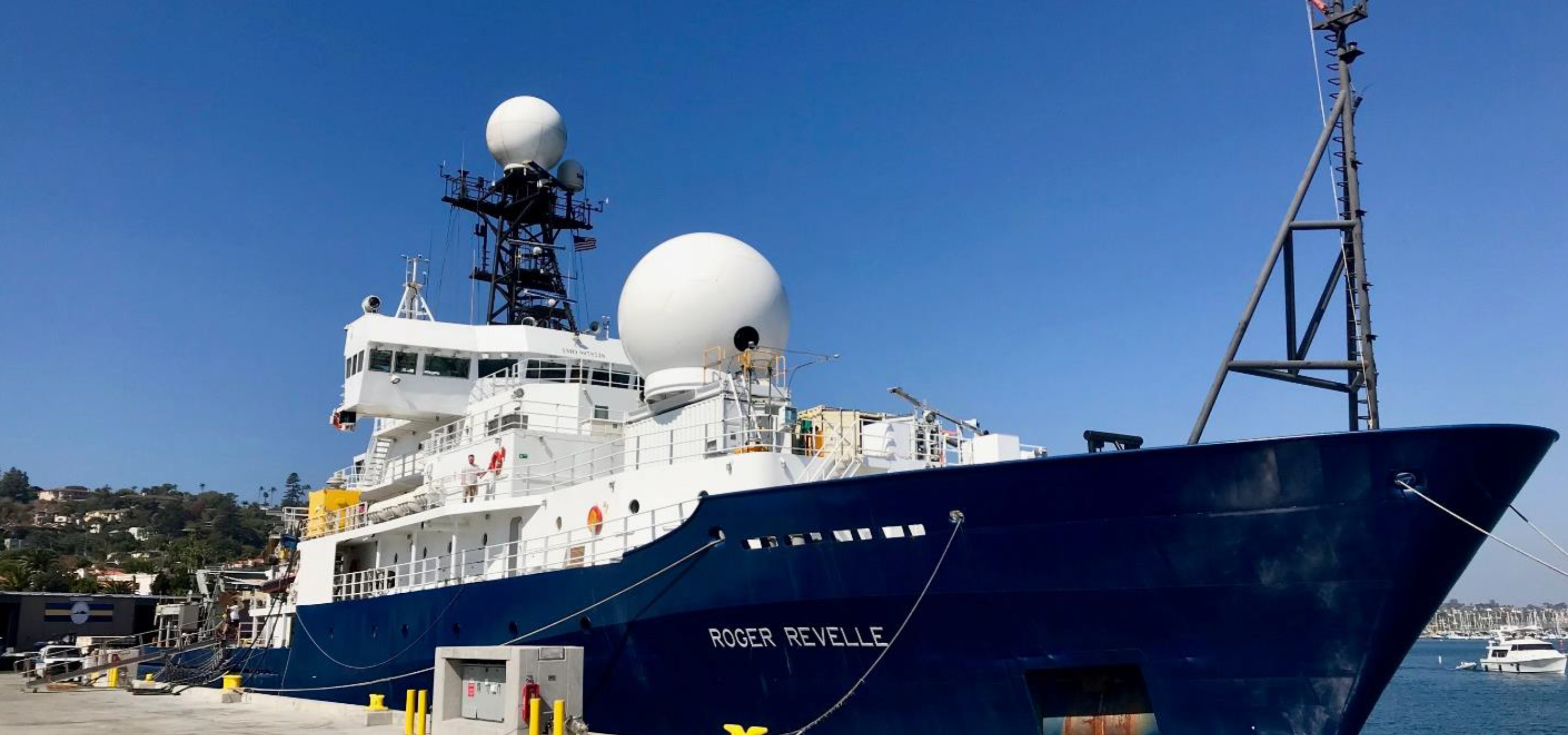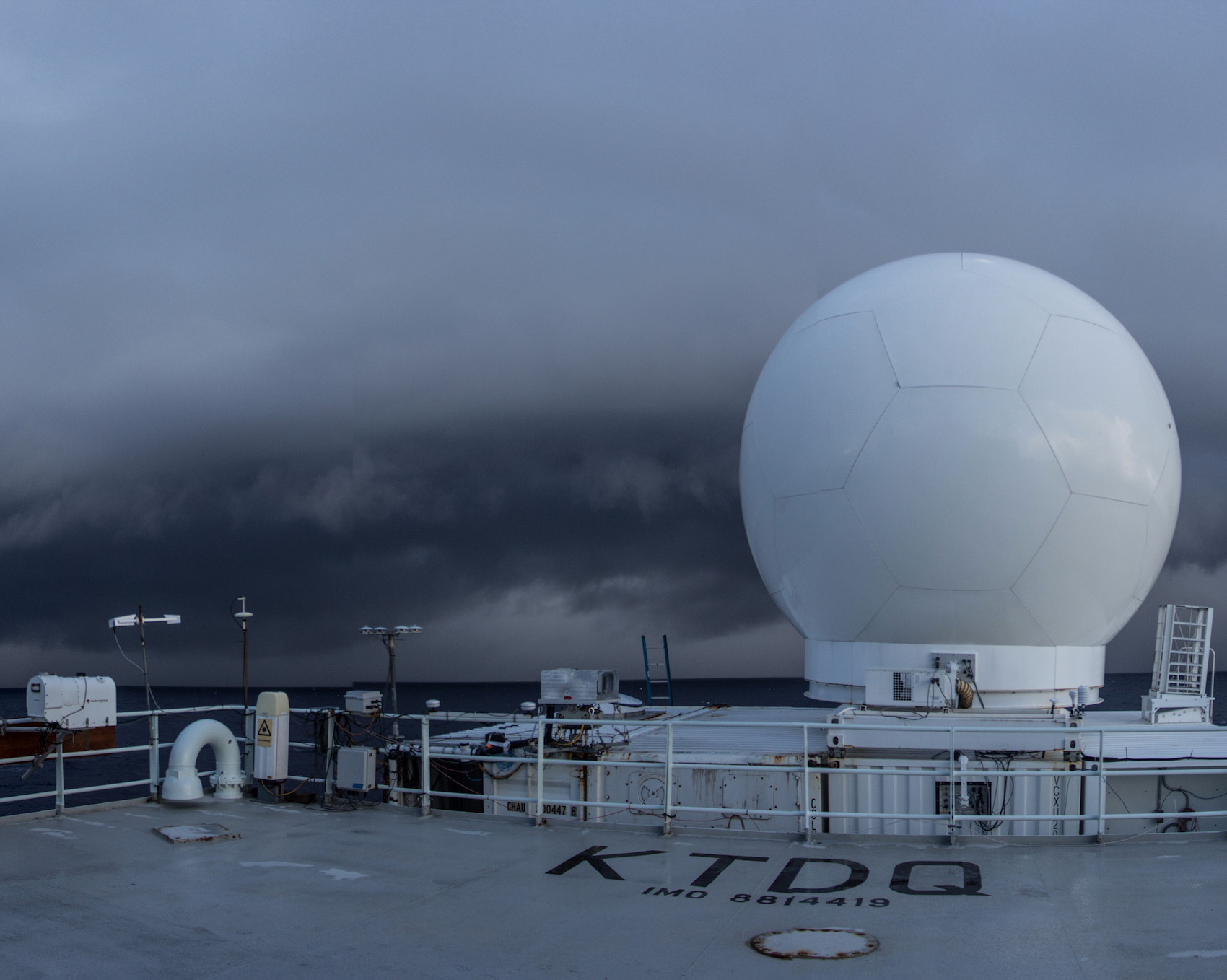The Colorado State University (CSU) Sea-Going and Land Deployable Polarimetric (SEA-POL) radar is a National Science Foundation (NSF) community facility.
The stabilization and rugged design of SEA-POL allow for research-grade accuracy of weather radar measurements on a ship in rough seas or strong winds on land that can probe the structure of clouds and precipitation. SEA-POL has already conducted four prior research cruises and and one land deployment.
Numerous science opportunities are possible with a portable, 5-cm wavelength radar in atmospheric science including advances in tropical and mid-latitude weather, regional climate and climate change, cloud microphysics, dynamics of convective storms, and extreme weather impacts. SEA-POL can also contribute to interdisciplinary science in oceanography, hydrology, and water resources.
SEA-POL is managed jointly by the CSU Atmospheric Science and Electrical and Computer Engineering Departments to make the radar available for community requests for deployment in the U.S. and around the globe. Our effort will include education and outreach opportunities focused on the societal benefits of NSF-supported observations for better environmental science and weather prediction.
- 250 kW Magnetron transmitter, low-maintenance solid-state modulator
- Dynamic platform stabilization
- 1° beamwidth low side lobe antenna
- Modular design, containerized shelter with all radar electronics
- State of the art RVP900 signal processor and IRIS user interface
- Fully remotely operable
- Excellent image rejection to avoid interference from other radars
- Built-in automatic calibration system & navigation system (INU)


